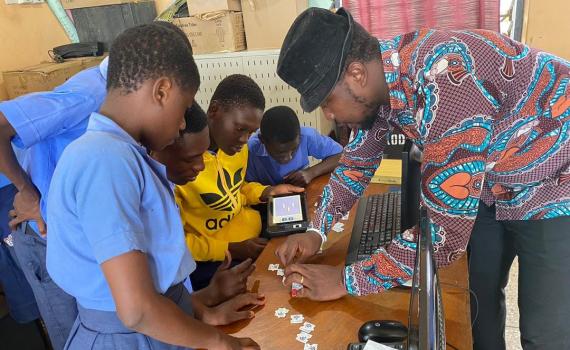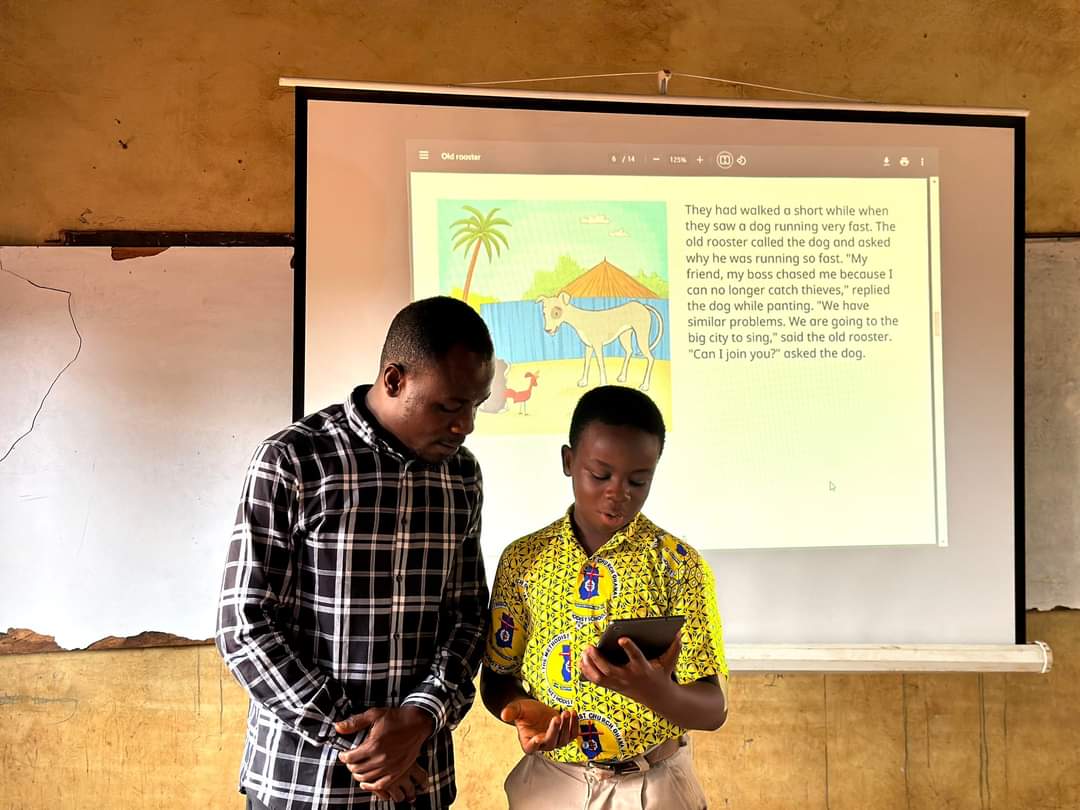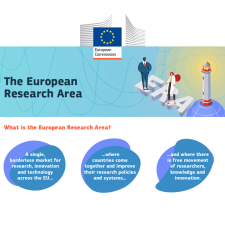
Public librarians are teaching children at schools across Ghana digital literacy, covering digital reading, coding, fake news, online safety and much more. Ugne Lipeikaite, EIFL Public Library Innovation Programme Impact Manager, reflects on the impact of the library outreach programmes.
At the end of August, I had the opportunity to participate in the second round of the training-of-trainers workshop for head librarians of Ghana’s public libraries. The librarians are taking part in the Digital Learning @ Ghana Public Libraries project, implemented by EIFL and the Ghana Library Authority, which is transforming the way libraries are connecting young people to technology and learning opportunities. Almost six months have passed since the first round of training, making this workshop a good moment to reflect on progress and share the librarians’ accomplishments.
An important aspect of the project is outreach to schools, during which librarians lead engaging and interactive sessions on digital literacy topics, ranging from online safety to coding. These outreach programmes spark students' interest and also inform them about upcoming digital learning workshops in libraries, with more in-depth training based on open educational resources. Since the initial training in March this year, all 15 libraries involved in the project have launched successful outreach programmes, visiting schools more than 60 times and reaching over 3,500 students.
Bringing Digital Literacy to Schools
One of the most popular topics among students is online safety and librarians have found creative ways to ensure that safety tips resonate. During an outreach visit from the Accra Central Library, librarians asked students to create and perform skits based on online safety scenarios. In groups, they acted out how they would determine whether an online message was safe or risky and what actions they should take. Use of skits helped reinforce safety tips in a fun and memorable way. Mrs Agyemang, a teacher from Kinbu Senior High Technical School, commented:
"The online safety outreach was an eye-opener not just for the students, but for us teachers as well. It’s easy to overlook the importance of teaching digital etiquette and online safety, but this session highlighted just how crucial it is in today’s world. The interactive activities, especially the skits, really helped the students grasp the concepts in a way that will stick with them."
Cape Coast Regional Library tackled the issue of fake news, misinformation, and disinformation. Librarians led discussions with students on why fake news exists, how it spreads, and how to spot it. After one session, a 13-year-old participant remarked:
"I was surprised to find out that fake news isn’t just something you see on TV, radio, or social media — it can also spread through conversations with our friends. This training made me realize that even some of the things we do in our daily lives can contribute to spreading fake news without us even knowing it."
Encouraging Digital Reading
Many outreach programmes focus on digital reading. For example, Effutu Municipal Library introduced students to apps like African Storybook and Read Along. African Storybook allows students to download and read books by African authors, in African languages. Read Along helps children have fun while they read aloud, and prompts them when they get stuck. Students were excited to get immediate feedback on their reading skills from Read Along. Librarians helped students to navigate the apps. After digital reading sessions, some students expressed a desire for their own devices so that they could continue practicing at home.
Hands-On Technology Experiences
Through library-led outreach programs, students had the opportunity to interact with technology - many for the first time - using laptops, tablets, and smartphones brought for classes by the libraries. After an outreach visit by librarians from Northern Regional Library in Tamale, one student said:
"I was really excited because we had never had a hands-on session like that before. Our teacher had shown us Microsoft Word in class, but we didn’t get to try it out ourselves. So, when the team from the library brought laptops and taught us, it made so much more sense to me. I finally understood how to use the Ribbon, Tabs, and how to format text with different font sizes, styles, colors, and alignment.”
In Western Ghana, Sekondi Regional Library’s outreach sessions introduced students to mobile devices, web browsers, search engines, and basic word processing with Microsoft Word. The students enjoyed interacting with the devices and participating in icebreakers and quizzes that made learning both fun and engaging. Emmanuel, a teacher from Sekondi Presbyterian Junior High School, said:
"The digital outreach programme has been a game-changer for my students. They are more engaged and excited about learning than ever before."
Several libraries introduced students to coding, using the puzzle-based coding game Rangers. One particularly memorable outreach was conducted by Eastern Regional Library in Koforidua at a school for students with hearing impairments. The session took longer, and was more difficult for the librarians because of the need for sign language translation, but interest was high and it was a great success. At the end of the session, the school’s ICT teacher discussed the possibility of integrating the coding game into regular school activities.
Expanding Digital Learning in Libraries
After the success and excitement generated by these school visits, the libraries are now preparing to launch more in-depth digital learning programmes in public libraries, facilitated by librarians and using open educational resources available online. The programmes will comprise four to six 90-minute sessions, allowing students to dive deeper into digital literacy and build on the skills gained during the library’s outreach visits.
SHARE / PRINT







